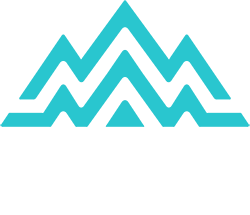7 Questions with Cary Morin
A member of the Crow tribe, singer, songwriter, and guitarist Cary Morin grew up in Montana near the Crow Reservation, where he was “surrounded by music.” No wonder, then, that he started playing (piano and then guitar) and an early age. As he puts it, he never intended to do anything else.
Based now for many years in Colorado, Morin records and tours with his band Ghost Dog, as a solo artist, and as a duo with his life partner Celeste Di Iorio. They regularly play across the state and tour all over the country and Europe.
Morin’s new album, Innocent Allies, is due for release in January of 2024 (hear a song from the album above). Morin was also nominated for the Colorado Spirit award as part of our 2nd annual Colorado Sound Music Awards.
Related: Meet the nominees of the 2023 Colorado Sound Music Awards
In our interview below, Morin talks about growing up with a mix of traditional Crow and contemporary pop, rock, and country music all around him, playing the prestigious Kennedy Center in Washington, D.C., and the “strong” Native music community in Colorado.
What was your first musical memory?
My first instrument was piano. When I was in kindergarten my mother traded our neighbor piano lessons for me, in exchange for doing her laundry. I wasn’t much of a student, and took to learning songs that were on the radio instead of working on my piano lessons. I would work harder at learning Chicago songs or “Benny and the Jets”….
Was music an important part of your family life and as part of the Crow tribe growing up in Montana?
I was surrounded by music. Traditional Crow music was always there. My mother had recordings of her father singing traditional songs. It wasn’t as easy to capture that music being performed live in those days, but I remember our family having cassettes of traditional music. There may have been some reel-to-reel recordings of my grandfather singing….
I loved listening to the radio and calling in to request songs. My folks loved listening to all sorts of music; Nat King Cole, Andrés Segovia, and many, many country artists were on heavy rotation in our house. There was a good selection of rock music from my older brothers, too. I eventually added as much jazz and bluegrass to the family collection as I could get my hands on.
My father was a military man, so my childhood days on the reservation were visits with family. I never actually lived on the Crow Reservation. We always lived close enough to visit often and enjoyed regular visits from relatives from both of my parents’ families. It was very important to my mother that my Crow culture was a part of my life. I learned traditional dance from an early age and always felt at home on the Crow Rez.
Was there a moment when you decided to take your guitar playing more seriously – to turn professional?
That moment is hard to identify. I think when I started playing guitar, I didn’t intend to do anything else from that point on. My time as a young child learning to play piano by ear made guitar easy for me. I think I understood how things were supposed to sound. There was always a guitar solo, a guitar melody, a guitar chord or song that needed to be perfected. I’ve never stopped.
Is there a strong Indigenous music community in Colorado? How do you see it growing?
There is a strong Native community in Colorado, but that is true all over the U.S. It has always amazed me how often I run into folks I end up being related to as I travel around the country. Native music has grown with the availability of the internet. More and more artists can make art available to a larger audience and that is true in Colorado as well. Younger artists grew up in a time learning to promote their music on the web, never having lived in the days of the “record deal.” Visual artists, musicians, dancers, actors, Native or not, all have an easier way to reach the world through technology.
You call your style of music “Native Americana” – how do you describe or define this genre?
That was given to my music by a promoter who was wondering what to call my show. He suggested it, I thought about it and ultimately ran with it. My influences are folk, country, native music, and a bunch of other genres, too, so it seemed to make sense.
Since then, I’ve seen other Native artists use it, too. Artists have so many potential influences it’s hard to come up with just one genre or description. Bands often go through the process of choosing a name that might describe the music, and then make up a genre that describes the band…it’s both funny and exhausting. I miss the days when there was more mystery surrounding artists and their music.
You played the Kennedy Center a few years ago. As a Crow tribal member who grew up in rural Montana, what was this experience like for you?
Set aside heritage for a moment, as a musician I’m always striving to “level up” when it comes to playing more prestigious venues, as most artists are. In Fort Collins in my younger days, the goal was always the next biggest room. The more venues and regions I play broadens the goal. The first opportunity to perform at the John F. Kennedy Center was a bit daunting. I am forever trying to grow as an artist and continue to look to newer and more compelling opportunities. As a Native artist it’s an honor to share my songs and perform on any level. I hope that I learned something from that experience and have the opportunity to keep moving forward.
What advice would you share with up-and-coming Indigenous musicians? Anything you wish you had known when you were younger and just starting out?
To all performers, Native and non-Native: be true to your art and your story. And, practice, practice, practice. Are you, as an artist of Native heritage, creating your distinct style of art; or a Native artist creating the Native art of your culture and heritage? Either way, I think if you are comfortable sharing your culture through your art, that’s great. If you are a Native performer that is more private about your culture and heritage, that’s OK, too, and I encourage you to still share your art.
Related pages:
The Colorado Sound Music Awards – meet the 2023 winners
Top 850 Cover Songs – see the complete list of songs based on your votes
Soundboard Newsletter – subscribe to get music news, presale codes, other goodies every Thursday morning
Become a Colorado Sound member – join our awesome community of passionate music lovers
Instagram – follow us on Instagram for fun Stories, Reels, and posts

